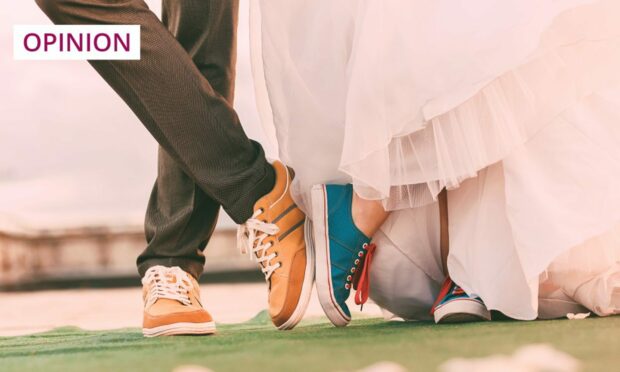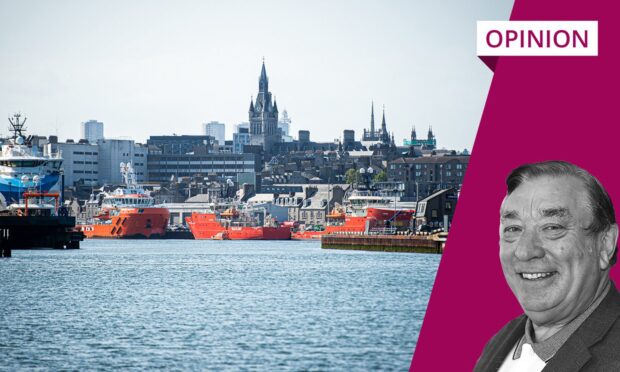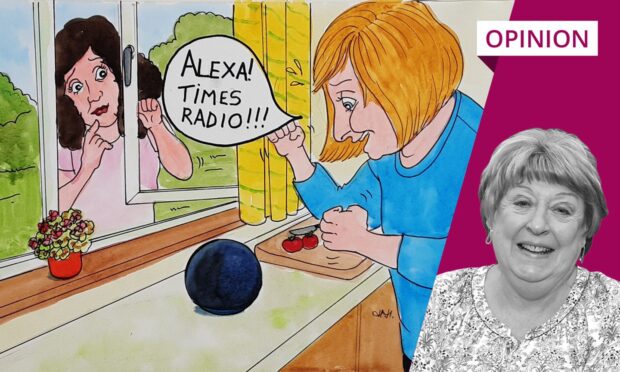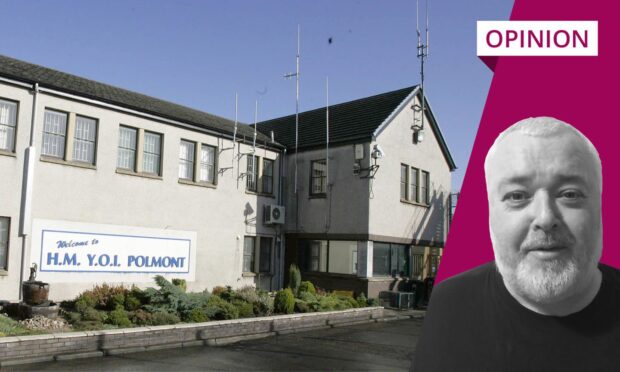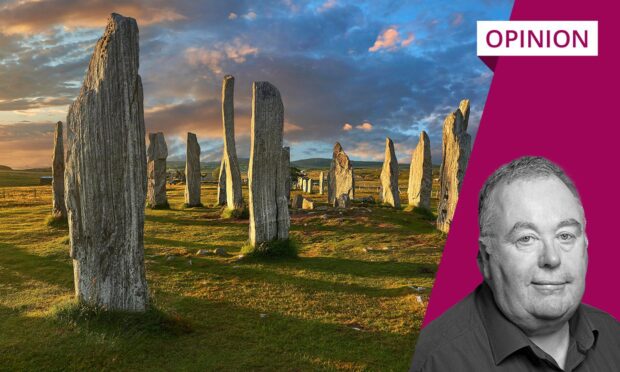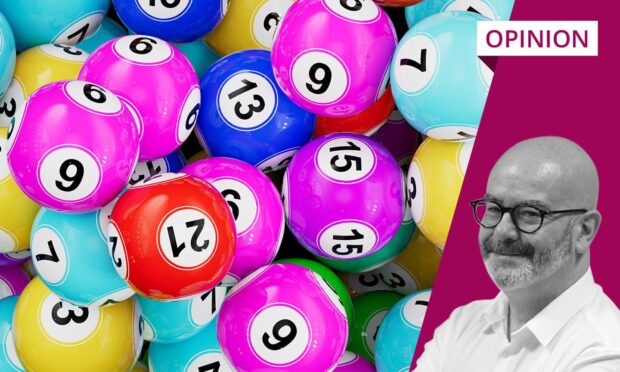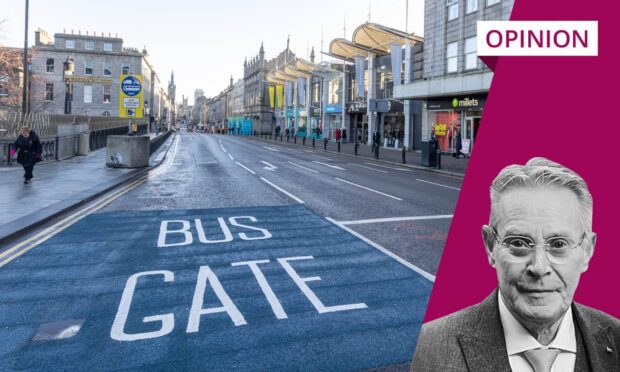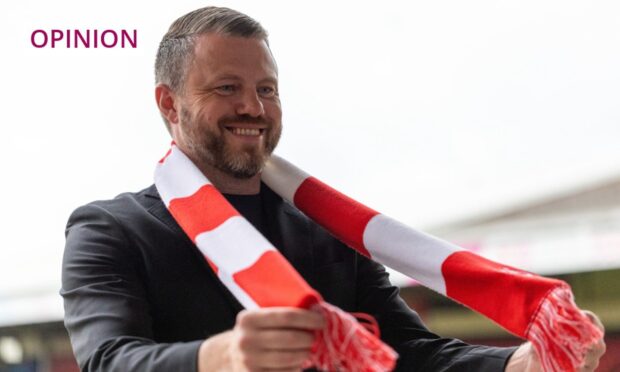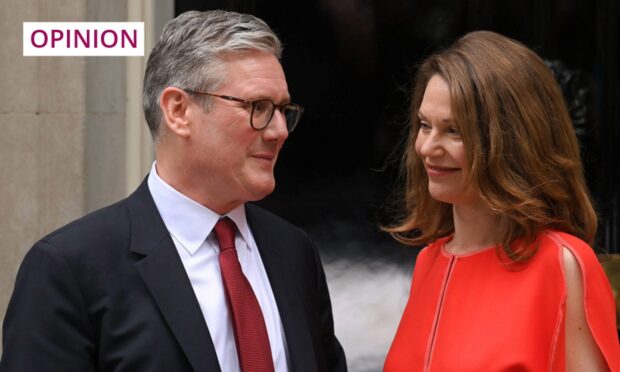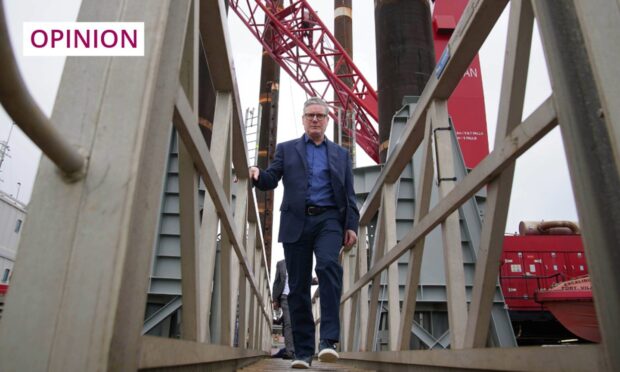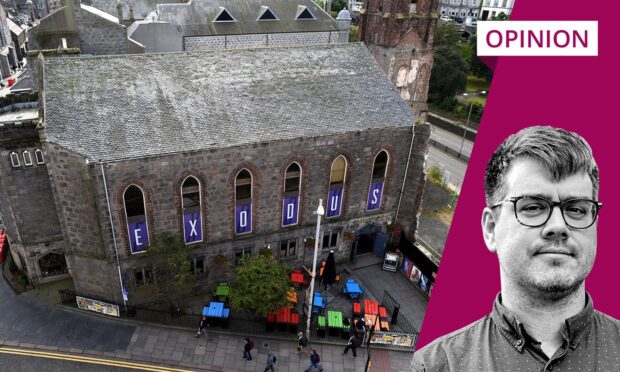Last month, my partner and I decided to get married. No big, flashy proposal or extravagant jewellery, just a mutual decision made on a rare child-free walk.
We decide to keep it simple: a ceremony and a ceilidh, a bunch of friends. Easy. Or so we thought.
Days later, and I’ve downloaded a wedding planning app. “It’ll just help keep us organised,” I think naively. It’s slick and easy to use, with a little icon to click that fills the screen with confetti. Cute.
The app encourages you to complete short quizzes to discover your wedding style, choosing the photos or adjectives that most appeal. You can then seamlessly email wedding suppliers for quotes.
Starting with venues, the local places I find when I tick the “on a budget” box vary from £4,000 to over £8,000. That’s before you factor in catering, stationery, flowers, venue decor, transport, jewellery, fancy frocks and kilts, hair and make-up, photography, ceremony fees, a celebrant, a band – and myriad other costs I’m learning I should be budgeting for.
To obtain a florist quote, I need to decide if my dream wedding is elegant and chic, romantic and dreamy, authentic and whimsical, or unique and fun. And what is my cake priority? Stunning execution, tastes delicious, fresh and floral, or showstopper? Who knows?!
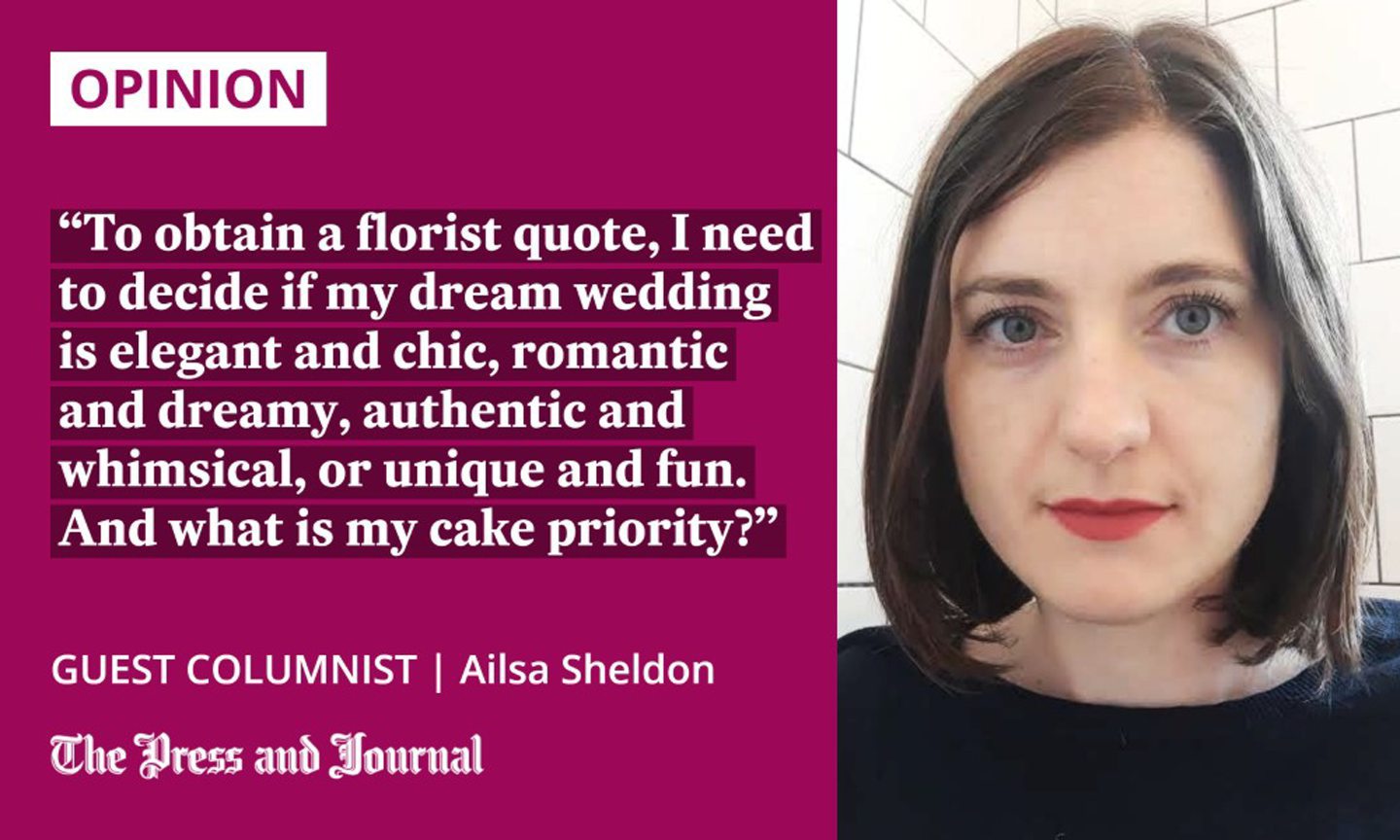
I haven’t booked a thing, but the costs are spiralling in my head. Wedding photographers start from £1,400, and many list prices as “wedding investment”. At that price, it’s certainly an investment. Learning that wedding caterers range from £80 to £120 per head, I start to get a little queasy.
I don’t think for a moment that any of these talented professionals aren’t worth their time or skills, and everyone has bills to pay. I don’t want to tick an “exploit the workers” or “undervalue professional services” box. But, do I really need all of them? Or any of them?
We’re getting married older and divorced less often
Marriage in Scotland is changing. In 1980, the average age for a man getting married was 28 years; for women it was 26. And, in 2000, 34 and 32, respectively. In 2022, it was 39.6 for men, 37 for women. That’s a huge demographic swing in just over 40 years.
The number of marriages is rising (30,033 last year), and divorce numbers are falling.
Where we get married is changing, with church weddings waning in popularity. In 2000, there were 11,267 Church of Scotland marriages; by 2022, only 1,954 – a drop from 37% to just 6.5%. Other religions have seen similar declines.
In contrast, 2022 saw 4,533 Humanist ceremonies and 12,821 civil marriages in Scotland. So, in short, couples are getting married older, and are far less likely to have a religious wedding.
According to research by planning app Bridebook, two-thirds of UK couples still get some financial help from their families to pay for their wedding, and it’s no longer just the bride’s family who chip in.
Most couples pay for at least part of their wedding, and a third pay for everything themselves (we’re in this camp). In theory, older couples have more financial security, though they’re also more likely to have kids, high rent or a mortgage, too.
The big day can be ‘you’ without a huge price tag
I start to think about all the weddings I’ve been lucky enough to go to: days of dancing and feasting in a castle, slap-up meals in smart hotels, and beautiful barns decked in twinkling lights. All heartfelt, fun, personal – and hard to live up to.
My mum had five sisters and, as far as I know, they had near-identical weddings: the local church and a do at the university where my grandfather taught. The guest list was mostly my grandparents’ friends, and they picked up the bill. No personalisation required.
It’s great that there’s no longer a one-size-fits-all approach, but there’s still a lot of pressure
Today apps, magazines and social media say a wedding should truly reflect you and your partner, be held at a venue that “gives you butterflies”, involve wearing your “dream dress” and all your favourite people. That’s wonderful, in principle, and it’s great that there’s no longer a one-size-fits-all approach, but it’s a lot of pressure, and “investment”.
I’m midway through an internal meltdown when there’s a knock at the door. It’s my good pal from next door. “Me and R are getting married tomorrow in the garden, do you want to come round after for a glass of fizz?”
So, the next day, I clock off early, throw on a frock and head over to toast the happy couple. Their ceremony is just family, followed by neighbour drinks, then, donning trainers, out for pizza with their kids. It’s perfect, entirely personal, and didn’t require a bank loan.
It’s also, for me, a pertinent reminder that it’s the marriage that’s the important bit – and, while it’s easy to feel under pressure and get carried away, there are many ways to make our promises.
Ailsa Sheldon is a Scottish freelance journalist
